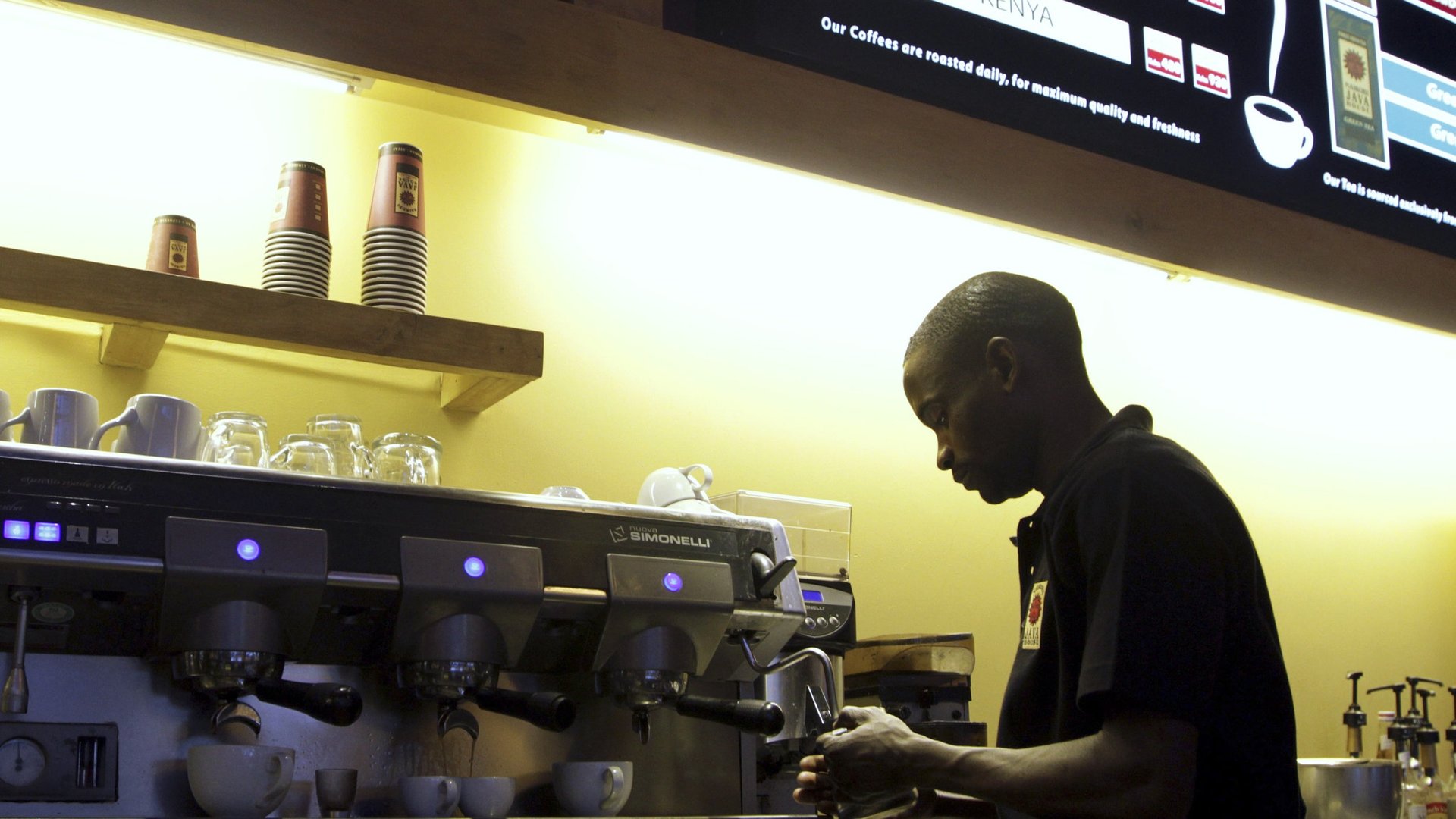African coffee: It’s not just for export anymore
Java House, an East African coffee chain with 36 stores in Kenya and Uganda, is planning to get bigger, and much more far-flung. CEO Kevin Ashley tells Reuters that the company plans to open 12 locations per year, and that in five years it will have “a major presence in most of the major urban centers of Africa,” with new outposts in Accra, Dar es Salaam, Kigali, Lagos, and Lusaka.


Java House, an East African coffee chain with 36 stores in Kenya and Uganda, is planning to get bigger, and much more far-flung. CEO Kevin Ashley tells Reuters that the company plans to open 12 locations per year, and that in five years it will have “a major presence in most of the major urban centers of Africa,” with new outposts in Accra, Dar es Salaam, Kigali, Lagos, and Lusaka.
Founded by three former relief workers in 1999, Java House started in Nairobi, where, as Ashley tells it, two-thirds of its early customers were expatriates seeking a good cup of coffee in Kenya—a country which had plenty of coffee exports, but no coffee-drinking culture at the time.
But times are changing.
Despite accounting for around 12% of world coffee production, Africa still consumes a relatively small amount of coffee, with the bulk of raw coffee beans exported to world markets. But local demand is growing, as is the number of coffee houses on the continent.
It’s not only local brands that are trying to cash in on Africa’s growing coffee-drinking culture. As Quartz reported in July, Starbucks is coming to the continent next year, choosing South Africa as the first location. The Seattle-based coffee chain, ubiquitous in the US and in a growing number of markets around the world, intends to work with a South African franchising company, Taste Foods, to roll out stores to other countries on the continent.
While Starbucks might be a tough competitor in African markets—as a global retailer, it has immense buying power with producers—analysts at Ecobank see an opportunity (pdf) for local chains to cash in on Africa’s coffee-drinking trend, especially among more price-conscious consumers unwilling or unable to pay for Starbucks’ premium coffee drinks.
“The key to capturing the full value of African coffee,” Ecobank’s analysts say in their report, “will be in building robust value chains that ensure that the beans flow seamlessly from farmers to African traders and roasters, and onwards to African consumers.”